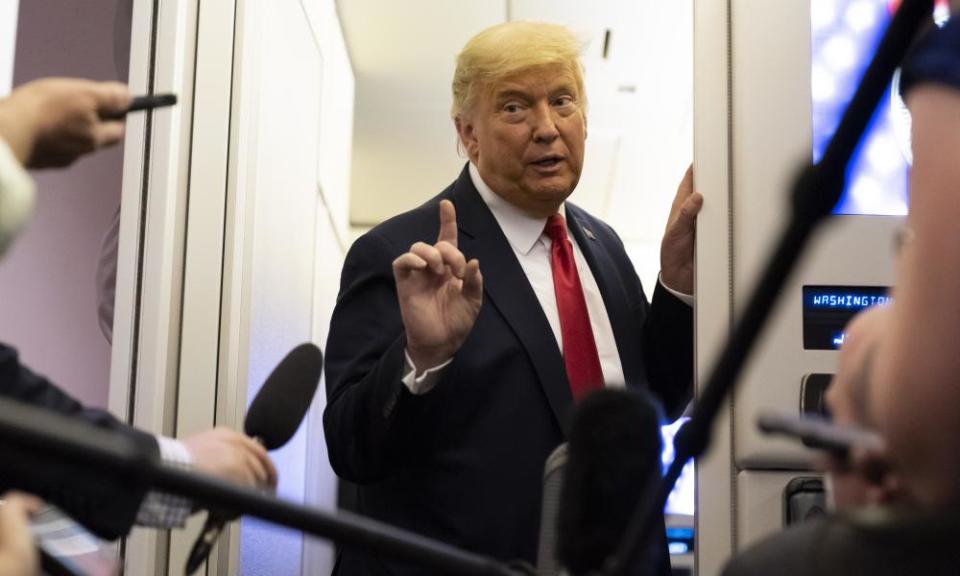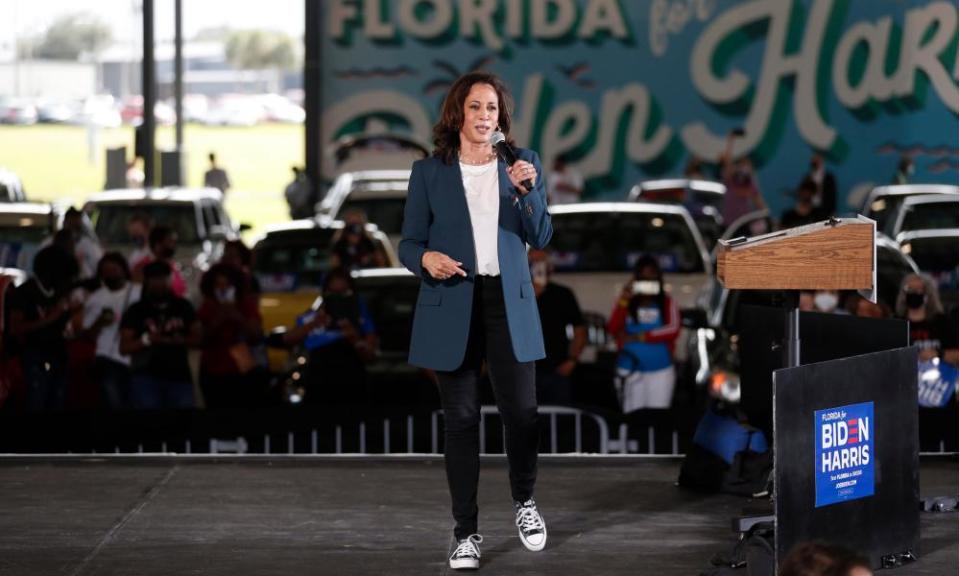Ballot decision a win for Democrats in key state

Welcome to today’s US election briefing for Australia.
One of the many reasons to be cautious about predicting the outcome of this election based on polling (apart from, you know, the whole 2016 thing) is uncertainty around voting itself in the US, particularly in the midst of the pandemic.
One issue is how many mail-in ballots will actually be counted. As this excellent piece in Politico explains, Republicans have had some success in court in preventing ballots that arrive after election day from being included. In states that come down to the wire, such decisions could prove decisive.
That’s why a supreme court outcome today was so important. Pennsylvania will be allowed to count ballots received up to three days after the election, as long as they are postmarked by election day, or have no postmark or an illegible one, so long as there is no evidence they were cast after the election. It’s an outcome that could mean thousands more votes are counted in one of the most critical and hard fought swing states in the election. Trump won the state in 2016 by just over 44,000 votes.
As my colleague Sam Levin writes, the outcome is “a win for Democrats, who sought the extension in state court, and a loss for Republicans, who had asked the US supreme court to intervene”. You can read his full report here.
The result wasn’t a ruling by a majority – the court was split 4-4 on the matter, meaning the state’s supreme court ruling will stand. It’s notable that such a deadlock wouldn’t have occurred with a ninth justice on the bench, and instead could have gone the other way.
Ari Berman, a writer who has extensively covered voter suppression in the US, argued the outcome showed why Republicans were rushing conservative judge Amy Coney Barrett onto the court before the election: “The fact that 4 conservative justices would’ve overruled PA Supreme Court is very bad sign for voting rights & shows why GOP so desperate to confirm Amy Coney Barrett before election,” he wrote on Twitter. “They want to do Bush v Gore on steroids.”
The big stories

Donald Trump has attacked his top public health expert, using a call with campaign staff on Monday to deride Anthony Fauci as “a disaster” and to claim “people are tired of hearing Fauci and all these idiots” discuss ways to combat the coronavirus.
Candidates will be put on mute while their opponent is answering questions during the final presidential debate this week, a response to their first chaotic match-up. Mics will be unmuted for the open discussion segments.
A fire inside an official election drop box in Los Angeles county has damaged ballots and is under investigation for arson, officials said.
Twitter has removed a tweet by Scott Atlas, a controversial scientist who has Trump’s ear, in which he wrongly stated that masks fail to protect against coronavirus. Atlas is understood to have become the key scientific influence on the president.
Under the Trump administration, Alaska has emerged as a hotbed of Arctic oil extraction. In the latest piece in a series looking at the environmental impact of a potential second Trump term, this piece looks at Big Oil’s answer to the melting Arctic – cooling the ground so it can keep drilling.
While the world’s attention is on the presidential race, the battle for the US Senate that will culminate on 3 November is equally dramatic. Here we look at the seven toss-up states that could determine who controls the chamber.
Quote of the day
… maybe like a lot of women who get married and think they’re going to change their spouse, and that doesn’t usually work out very well.
Republican Senator John Cornyn from Texas describes his difficult relationship with Donald Trump, concluding he was not going to change the president.
Election views

Facebook and Twitter are at least attempting to avoid contributing to the kind of disinformation that dogged the 2016 election, writes media academic Siva Vaidhyanathan, while major American news outlets continue to show a willingness to get played. The treatment of the Hunter Biden story is a case in point, he argues.
The realities that led to Trump’s electoral college upset are still with us, says Lloyd Green, with the divide between the two Americas only widening. “Don’t look to election day to bind the nation’s wounds.”
Podcast of the day
What matters in the presidential election is not which candidate gets more votes, but who secures the 270 electoral college votes needed to get to the White House. Guardian US political correspondent Lauren Gambino talks to Anushka Asthana about each candidate’s possible paths to power.
Around the web

There is serious discord among members of the Trump administration’s Covid taskforce, the Washington Post says in this behind-the-scenes account, with Scott Atlas (see above story on masks) reportedly shooting down attempts to expand testing and advancing fringe theories.
For more analysis of the supreme court decision on Pennsylvania mail-in ballots and why it raises the stakes for the Barrett nomination, this Slate piece is a good read.
Trump is being cautioned to strike a softer tone in the final upcoming presidential debate, according to Axios, with advisors telling him to tell more jokes, interrupt less and let Biden “wander rhetorically”.
What the numbers say: 4.06 million
The number of people who have already voted in the state of Texas alone. That’s 43% of the total 2016 turnout, according to the NYT, continuing the pattern of record early voting in many states this year.
Sign up
Thanks to everyone who has signed up to receive this briefing as an email every weekday until the election. If you’d like to join them, you can sign up here.

